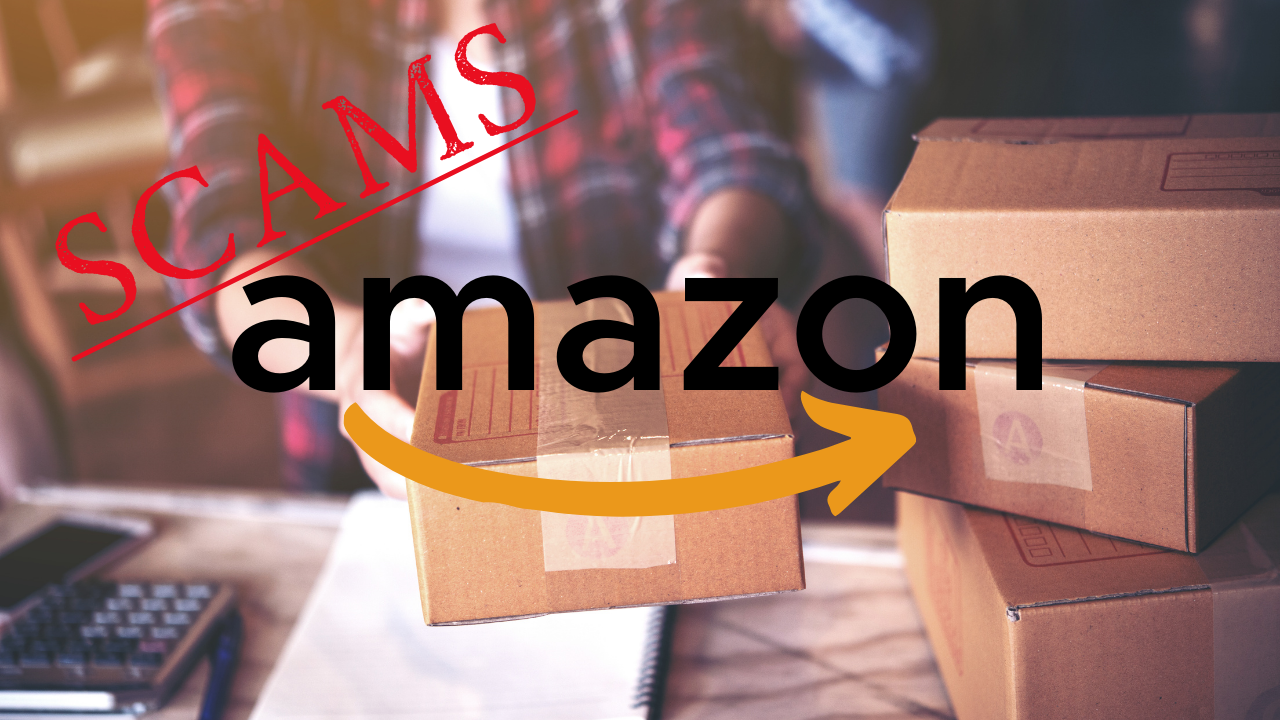
Amazon is a huge enterprise that makes billions of dollars every year and grew 84% in 2020. Some scammers have capitalized on its success and have found ways to deceive Amazon’s customers for their own gain.
Today’s guest is Shaahin Cheyene. Shaahin is an award-winning entrepreneur, investor, speaker, podcaster, writer, and filmmaker currently based in Los Angeles, California. He is the CEO and chairman of Accelerated Intelligence which is an Amazon marketing and advertising agency. He shares his passion for Amazon in his course Amazon Mastery and is also a featured mentor at the Founder Institute. Shaahin has been highlighted in many publications including Newsweek, The New York Times, Chicago Tribune, and The New York Post.
“There’s been this phenomenon of promoters holding shiny things in front of people who like chasing shiny things. It’s the “insta-culture” that we’ve become accustomed to. In particular, young people are attracted to that.” -… Share on XShow Notes:
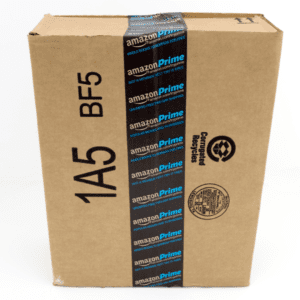
- [1:10] – Shaahin began in physical products while he was 16 years old. By the time he was 18, the company he was working with hit $1 billion.
- [2:17] – Shaahin explains the importance of distribution and compares it to the film industry.
- [3:59] – During the pandemic, Amazon increased revenue. Every time a company is “crushing it,” the scammers come out with something new.
- [4:58] – One of the interesting things about the Amazon platform is that anybody can sell on Amazon. Shaahin explains how the “buy box” works.
- [6:17] – Because any third party seller can sell on Amazon, some sellers will sell counterfeit or similar products to what is actually listed thinking that buyers won’t care.
- [8:01] – If it is under $10, most consumers will not return it and although they received an inferior product than they thought they would get, the third party seller still earns the revenue.
- [8:28] – Shaahin always recommends reading reviews on a product before buying and explains that it is about more than reading what people think of it.
- [9:54] – Outside buying from brick and mortar stores or from recognizable name brands online, Shaahin also advises to Google the name of the seller.
- [10:46] – One of the great things about Amazon is their return policy. Amazon will take any product back 99% of the time. You should always return something that does not meet expectations so Amazon gets the feedback.
- [11:40] – Chris shares an experience in which he bought a product that stopped working a year later and when talking to customer service discovered that the serial number did not match their company.
- [12:53] – Shaahin explains one of the Amazon buying hacks that can save buyers money.
- [14:02] – As a consumer, price is a big factor. You want to try to buy when you can from Amazon themselves for that return policy and register for your warranty immediately on high ticket items.
- [14:57] – Sometimes Amazon will refund you your money for your return without even requiring you to send the product back.
- [15:12] – Unfortunately there are a lot of savvy scammers that are onto scamming third party sellers. Shaahin describes what they do.
- [16:29] – If your return rate exceeds the amount of money Amazon will make, they will fire you as a customer.
- [17:22] – Shaahin explains how a refund on a product for one of his clients wound up at his house with a fake returned product inside the box.
- [19:11] – Chris and Shaahin agree that if a customer’s problem was fixed, they are more likely to not only buy again but to spread the word of a great experience than simply a satisfied customer.
- [20:00] – Shaahin’s company changed the smoking industry. He explains how a buyer with extended warranties was trying to scam the company. Shaahin flipped the issue into an opportunity.
- [22:57] – There’s a high cost to low price.
- [23:51] – The terms of service on Amazon says that you cannot do anything to solicit reviews for your products. In the early days, people would leave fake reviews.
- [25:21] – Over time, Amazon has installed super sophisticated security measures to clamp down on this issue.
- [26:37] – Shaahin explains how third party sellers can get reviews.
- [28:29] – There are a lot of companies that will sell consumers discounted products in exchange for honest reviews. This can be done through discount clubs.
- [30:26] – The problem in these online marketplaces is that unless everyone follows every single rule, sellers will need to do what others are doing in order to build a business.
- [32:11] – There’s so little incentive to leave organic reviews. Shaahin explains that a lot of the reviews are likely from resellers.
- [33:36] – Chris explains how he was able to do some digging to find out how a specific scam works.
- [36:03] – Shaahin and Chris discuss criminal activity and how people are out there who willingly take advantage of others and a lot have the mentality of people vs. corporations.
- [38:36] – Shaahin was recently featured on the cover of a magazine and he shares the story of the interview.
- [43:49] – There are scammers who claim to help you start your business on Amazon but can’t follow through. Shaahin offers an Amazon course where he hand picks his students and has a 100% success rate.
- [44:50] – eCommerce is a form of real estate and investing in it can create a stream of residual income.
- [47:01] – The difference between Shaahin’s course and Mastermind group and the courses of others is that Shaahin makes his money on Amazon. Other course creators are making their money on the course themselves.
- [49:46] – You can trace success trajectory and their past just by searching it nowadays. If you are unsure about the claims of a course creator or an Amazon seller, do some research on Google.
Thanks for joining us on Easy Prey. Be sure to subscribe to our podcast on iTunes and leave a nice review.
Links and Resources:
- Podcast Web Page
- Facebook Page
- whatismyipaddress.com
- Easy Prey on Instagram
- Easy Prey on Twitter
- Easy Prey on LinkedIn
- Easy Prey on YouTube
- Easy Prey on Pinterest
- Shaahin Cheyene Home Page
- Shaahin Cheyene on Facebook
- Shaahin Cheyene on Twitter
- Shaahin Cheyene on Instagram
- Hack and Grow Rich Podcast
- Billion – How I Became King of the Pill Thrill Podcast
- Amazon Mastery Course
Transcript:
Shaahin, thank you so much for coming on the Easy Prey Podcast today.
So good to be on, Chris.
You are one of the world's most sought-after Amazon experts. Before we start talking about Amazon scams, how did you become an Amazon expert?
I started when I was really young in physical products. I developed a supplement in the early 1990s when I was 16 years old and the whole rave scene was happening. By the time I was 18, that company was making over $1 billion in revenue. I in fact remember the day when we broke $1 billion in revenue. I was this teenage kid just sitting there worried about the fact that the press was going to ask me how much $1 billion was and I actually had no idea if it was $100 million or $1000. I had no clue.
 Back in the day before the Internet, we had to get books—I had encyclopedias, and I kept looking. I was like, “man, this doesn't give me any information on how much $1 billion is because British billion, American billion.” That was my days with Herbal Ecstacy. I've written a book about it that'll be released in a little while.
Back in the day before the Internet, we had to get books—I had encyclopedias, and I kept looking. I was like, “man, this doesn't give me any information on how much $1 billion is because British billion, American billion.” That was my days with Herbal Ecstacy. I've written a book about it that'll be released in a little while.
After that, one of the things that I also teach my students in my Amazon Mastery program is that I realized that you have to look at distribution. Distribution is the most essential thing in any business. We looked at films, for example. There are a lot of really, really bad films that make it to the market. I'm sure you've seen one of those films where you're like, “dude, I want my two hours back.” You would probably pay to get your two hours back.
How did that film make it to the theater? Equally, for every one of those bad films, there are probably 100 great ones that somebody made. There were actors in it that we never saw. Have you ever discovered a film where you've been like, “Oh my God, this is amazing. Why did I never hear about this?”
Yeah, I've run across this.
The difference, we discovered, turns out, is distribution. What we teach is distribution first. We start everything—like you and I were talking about earlier—with foundational thinking and building these four pillars that we could talk about or go into, whatever you want to.
Once the pillars and the foundations are built, we start with the distribution. We look for what the market wants. We feed it what it wants, which is a much easier path than creating a better mousetrap and hoping that the world is going to try to make its way to your door.
That's always the challenge—if you're building a product that everybody else is already selling—to get someone to want to buy the better one.
We'll start off talking about some Amazon scams with Amazon as a $1 trillion company now.
Something like that.
If they aren't $1 trillion at the time this is recorded, by the time this is published, they'll be a $5 trillion company. With the pandemic, they have seen exceptional growth in sales. I see more Amazon trucks delivering in my neighborhood than UPS, FedEx, and DHL combined. That even excludes the Amazon Flex drivers who don't even have an Amazon sign on the side of their car.
Amazon is just crushing it right now. But any time some entity is crushing it, the scammers just come out of the woodwork. I want to talk about a couple of different types of scams. First of all, I want to talk about the scams targeting Amazon customers—people who are buying products from Amazon. What kind of scams have you seen from your experience as an expert targeting customers?
Do you mean by just random people targeting Amazon consumers?
Yes. Where it's either random scammers targeting Amazon consumers or people pushing fake products and scammy stuff into the Amazon platform itself.
One of the interesting things about the Amazon platform is that anybody can sell on Amazon. That’s what makes Amazon great. -Shaahin Cheyene Share on XOne of the interesting things about the Amazon platform and where we thrive as an education-first company—helping people think foundationally about building Amazon businesses—is that anybody can sell on Amazon. That's what makes Amazon great. Most people don't know this.
Because when you go on Amazon, you look, “Hey, OK, Buy Now.” You click buy now and the product arrives at your door. You don't think twice about it. They ask you, “Hey, where did you get that thing? Where did you get that product?” You'd be like, “Oh, I got it on Amazon.” That's it.
That's the sophistication of 99.9% of people. What people don't understand is that that Buy Box button—it's called the Buy Box—is gifted. You are blessed with that button. Amazon will hand that to you and bow their heads. “Here’s the greatest gift we are giving you”—to a seller, a third-party seller that's selling the product online. Now, when somebody clicks Buy Now, they're buying it from you and not Amazon or one of the many other sellers on there.
As sellers realize that this was happening, sometimes, what happens is that unscrupulous sellers will sell a counterfeit product, or maybe not even counterfeit but maybe just a similar product thinking that you won't care.
If it's a brand on there and you don't know what that brand is—the Acme brush—they’re going to sell you a generic brush that's basically the same thing. They know that there isn’t much difference and you're not really looking for the Acme brand, so when you order it, they have their ways of getting that Buy Box, usually priced if they have a lower price.
Amazon wants you to have a good customer experience. They find that when people get lower prices, they're having a better customer experience, so they're going to be like, “Hey, the China Company is selling it for $0.03 less; let's give them the Buy Box.”
Now, you've bought your brush hoping you would get the Acme brand, but you're getting a generic brush. This doesn't seem like a huge scam, but the Acme company, which is a seller that's gone through all of the trouble of building beautiful images, telling the story, buying inventory, and putting it on there is getting the short end of the stick.
If the China Company that's selling on their listing, which Amazon is allowing them to do, is selling an inferior product in order to get that $0.03 value, because a lot of times, margins are really thin, so they might sell an inferior product. The China Company isn't going to be affected that much when you leave a bad review. It's not their listing.
The Acme company—the company that owns the listing—is the one that's going to be targeted, and you as the consumer are going to get a crap brush. Most of the time, if it's under $10, people don't really bother returning it. It's one of the more common scams out there that consumers oftentimes will not be aware of because they'll just be like, “It was $10. I got a crap-quality brush. Whatever.”
Is there something consumers can do to spot when they are buying from someone where it's a different seller as opposed to the original brand seller?
It's a really good question. What can you do? The first thing I would do is read the reviews. Why? Not because reviews are entirely trustworthy. We can talk about reviews and how those work. I'm happy to lift the veil of how sellers get those and how the unspoken rules work in Amazon reviews. But read the reviews so you can see if currently, there's been any activity on the account that may lead you to getting a less-than-authentic product.
I'm an avid mountain biker. I go mountain biking every few days in the mountains of Southern California, which is gorgeous. I don't know if you have anything great in Orange County.
That we do.
You do? Amazing. Maybe I'll come down. We'll ride out there.
We ride up in a little place called Brentwood and I'm often buying stuff for my bike. I have a rule that, in general, I only buy where I can brand name stuff. If I'm buying pedals, there's a great company called Crankbrothers. I buy all my stuff from them. I may pay a little bit more, but I know, because that company is a real brick-and-mortar brand, that I'm going to be getting a certain level of quality.
Can I get a counterfeit product? Sure. But if it's truly counterfeit, meaning that it has that brand on it and it is not that thing, Amazon will promptly refund you and then there'll be a lot more trouble for them. More likely, what will happen is somebody will ship you something that looks exactly like that, but something will be off.
The second thing that you can do outside of buying regular known brands is to Google the company's name. If you don't find a website or if it's just a templated website about that product or brand, chances are it's just an Amazon brand. That doesn't mean that it's necessarily bad.
If it's got a majority of good reviews, the price point is right, they've gone a long way to tell the story of the product with the images, there's a video, and there's a story there on Amazon, it could be OK. It's just another red flag that they don't have information about it anywhere else would be something that might be of concern to me. Why don't they have a social media page? Why don't they have Instagram? Why isn't anybody posting about it on Pinterest?
In general, one of the great things about Amazon is its return policy. If you do get a product that does not live up to your expectations, Amazon will take it back 99% of the time. You shouldn’t return it, not just for the sake of returning it or because you care about the $10, but because that gives Amazon feedback that there is something wrong with that product. If they get enough of those, Amazon will cut the product. It's a good way to go.
I know for myself I just recently bought washing machine stabilizer feet. It keeps the washing machine from bouncing around. On a product like that, I could care less whether it was Acme or China because it is purely a widget. As long as the widget does what it's supposed to do, I don't really care.
I did have a situation where I was looking for an outdoor security camera for my house. I bought a couple of them. It was probably about a year later, one of them just didn't work right and so I called up the manufacturer. I said, “Hey, I bought the camera through Amazon and it's not working right.” “What's the serial number?” I gave them the serial number and they went, “Well, that's not really one of ours. It's not supported in the United States. That one was sold for South America. Sorry, we're not going to help you. The firmware update fried it. Goodbye.”
How was I supposed to figure when it's gray market stuff? I prefer that it was a gray market, when it's a product destined for a different country ends up in the U.S. Is there a way for consumers to be able to spot gray market products?
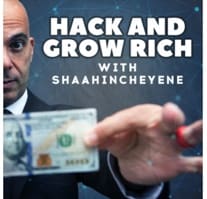 The first indication is if the price seems too good to be true, it probably is. With that said, I do this podcast too called “Hack And Grow Rich” where we talk about all kinds of cool hacks that you could do. One of the hacks that most people don't know—and I don't know if some Amazon police are going to break down my door right now for telling you guys this—is that 90-something percent of the products that are sold by Amazon warehouse as ding-and-dents are brand new.
The first indication is if the price seems too good to be true, it probably is. With that said, I do this podcast too called “Hack And Grow Rich” where we talk about all kinds of cool hacks that you could do. One of the hacks that most people don't know—and I don't know if some Amazon police are going to break down my door right now for telling you guys this—is that 90-something percent of the products that are sold by Amazon warehouse as ding-and-dents are brand new.
What happens is palettes of stuff go missing at Amazon all the time. They've got robots. They've got low-paid employees. It's complete chaos within a very sophisticated system. They don't have time if a palette gets misplaced for somebody to stop and check it.
What happens is it goes to the misplaced palette room. Once every couple of weeks, a dude comes in, checks them, and they go into Amazon warehouse inventory. The seller gets credited. They pay the seller. They just cut a check and give it to the seller. The seller is paid, so the seller is fine.
But then that product just gets resold. They can't sell it as new so they'll sell it as an Amazon warehouse. If you ever get an opportunity—and it'll tell you the condition, minor defects on the packaging, minor defects on the box.
I have never seen a minor defect on any box. I think it's just a story they tell so the vendors don't get mad at them. They sell them to Amazon warehouse at a discount, (a) because they blow it out and they make a profit twice on it, and (b) because that way, the vendors don't say, “Hey, wait a second. How did you get a palette of new security cameras and do that?”
As a consumer, price is a big factor. You want to try to buy when you can from Amazon itself. Their refund policy is the best. You'll have the right warranty. All that stuff.
The second thing you can do is register your warranty immediately when you get the high-ticket item—the camera, the hard drive, whatever it is. That way, you will know within the return period, if they're not going to accept it, that there's something wrong with it.
Oftentimes, Amazon will just refund you without you even having to return the item. Another secret—I’m sure the Amazon police are banging on my door right now for telling this, but again—it’s a business of efficiency.
When we're talking about scams, unfortunately, there are a lot of savvy scammers that are onto scamming sellers like us, you, and other third-party sellers on Amazon. What they do is they will order a laptop and they will return a sock. They will say, “This sock did not work.”
Most people who have this high-volume Amazon business see that as the price of doing business. Amazon will always side with the consumer.
In recent days, there was a couple. I think one of them was in Orange County. Did you hear about this? They ordered $1 million worth of stuff, returned fake and broken stuff, and thought they were getting away with it until the FBI knocked down their door.
No, I didn't hear that one.
There was a couple—it was a husband and wife. They were doing that kind of thing. I'm not sure how their scam exactly worked, but I think they were returning broken items—millions of dollars worth of stuff—keeping the new ones and reselling them on eBay or back on Amazon.
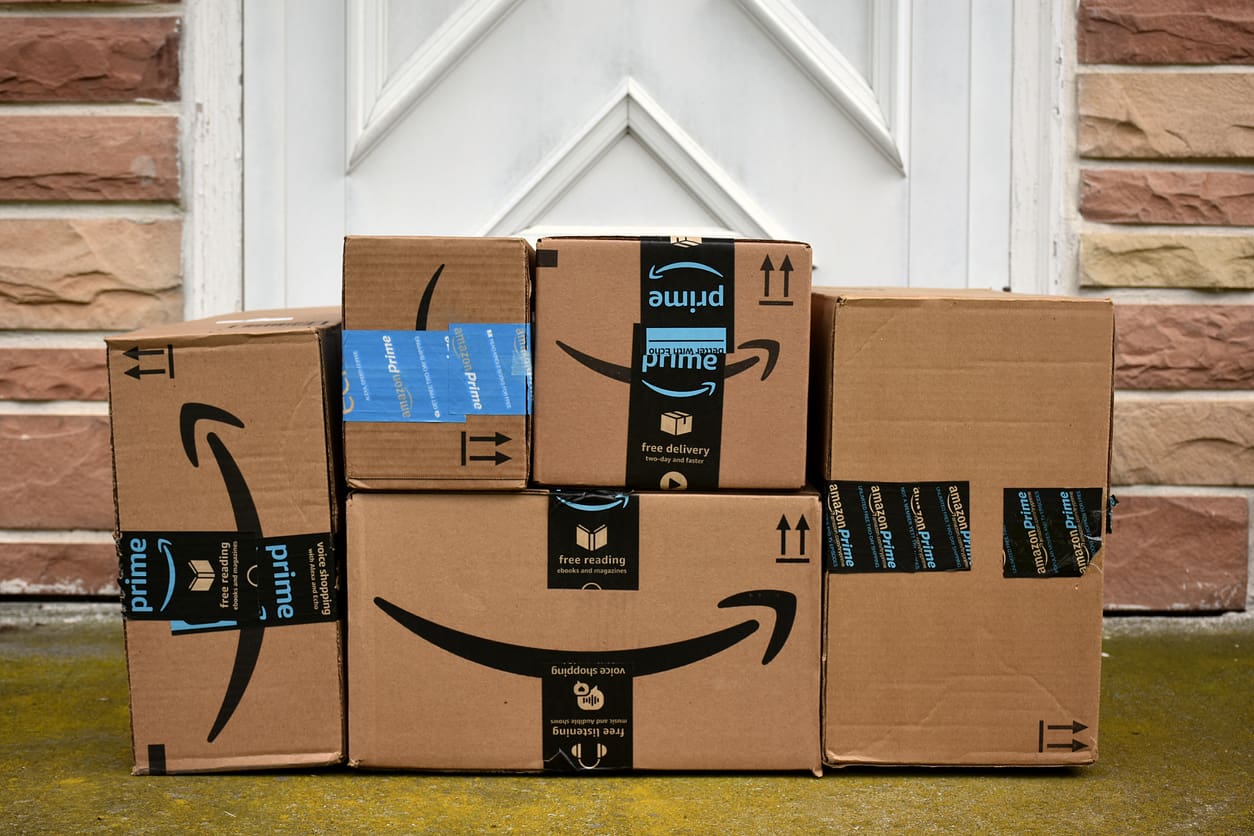 They got busted. Amazon's cracking down on that. In fact, if your return rate exceeds the profit that Amazon makes on your account, they will fire you as a customer. You have to be aware of that. These people were very sophisticated. They had multiple buying accounts—the mother, the uncle, the sister. Everybody was buying flat screens and returning them. They caught onto that.
They got busted. Amazon's cracking down on that. In fact, if your return rate exceeds the profit that Amazon makes on your account, they will fire you as a customer. You have to be aware of that. These people were very sophisticated. They had multiple buying accounts—the mother, the uncle, the sister. Everybody was buying flat screens and returning them. They caught onto that.
I represent a lot of clients in corporate America who come to my firm to accelerate their Amazon brands as well as I teach a lot of people who start from zero, build the foundation, build their Amazon brands, and how to succeed on Amazon.
Just the other day, one of the brands that we had is a really high-end line of glasses. I could actually say it's Sleep Doctor Glasses. It's this guy, Michael Breus. He's the Sleep Doctor. He's amazing. He's written a book. He's been on Dr. Oz, all that stuff. We represented his line of glasses, which are these beautiful, super-expensive glasses. You put them on, they’re blue-blocking, they help you sleep better—they're glorious.
We got a refund back. Because it's COVID, some of the returns are actually coming to me at home, which I'm not happy about. My garage is filled with stuff. I'm like, “Alright, let me open up a couple of these.” Maybe I'll just give them as gifts because sometimes, people just don't open it. They return it for whatever reason. The wife ordered it. The husband ordered it. They got two. They don't want one. Whatever. It gets sent back, we deal with it.
I opened one up, and it had the package for beautiful glasses with all the stuff that was on there, but the glasses were dollar-store sunglasses. I thought this was very amusing. I took pictures of it. We sent it to them and I think they'll investigate. I think what they do is they put a little tick. They flag that account so that if it happens more—I don't know how many times more it happens—then what they'll do is they'll take that person off Amazon.
But in general, there are a lot of people who want to take advantage of the system. I think you'd get that in any business. Truthfully, even with our business, we don't have the resources to go after every single person.
Oftentimes, even if I know somebody is doing something like that, I will have the tendency to see it their way and even just send them a free one because it's a story that they'd want to tell. That may turn into good karma, good customer service. At the end of the day, it's less friction.
Yeah. I'm always a fan of if you can fix a customer's problem, even if it wasn't a real problem, they are better advocates for your brand than a satisfied customer because you fixed a problem. In a satisfied customer, you just fulfilled your obligation.
That's right. There's no reward for doing what you're expected to do. You're correct.
After the Herbal Ecstacy business where I invented this pill—$1 billion in revenue— I decided I wanted to change the smoking industry. I invented what now is digital vaporization. I had the patents for it. It's now a publicly traded company. We invented all of the technology that led to modern vaporization and everything that you see out there.
One of the interesting things was early on in that process, this was a fantastic business because we were totally bullish and we were the first and only one on the market. You could smoke or you could use our device. We had a lot of early adopters that loved our product. These were the earlier days of the Internet. It was in 2000, 2001, I think, when I started that company.
We sold extended warranties, which by the way, we made more money on the extended warranties than we made on the item. It was a $399 item and it was a $99 lifetime drop-it-in-the-pool warranty.
This guy bought the warranty and he would video-tape himself doing all kinds of ungodly things to this device until eventually, in every video, the device would explode. We would get a call from him demanding a refund.
Finally, I just picked up the phone. He was shocked that the president of the company picked up the phone. I said, “Hey, bud, we refunded you. Not only that, I sent you a box with five new items. I want you to test them, make more videos, and let me know how they go.” He would do it. He blew up every single one of them. It took him a few months. Every few months, we'd send him new ones. We refunded him all his money and all his warranty.
We actually got some press on this. It was all over the news that this guy was doing this. It was great. That's actually one of the ways that our product got the attention of the producer on Regis & Kelly. That's how we got on Regis & Kelly. That product blew up, the company became a big public company, and it became a big success story at the time.
It's almost like taking bad PR and making it good PR.
That's right.
I was totally thinking of Blendtec, a company that sells blenders. Their marketing is all about shoving the latest product in it and turning on the blender as a great way for people to go, “The latest iPhone, will it blend?” They'll drop it in this blender. That's totally what this guy sounded like to me, but good publicity for the product.
Yeah. I was trying to think which one I used. We used this thing called the Vitamix that I bought in the '90s. Have you ever had one of these things? You buy it once. This thing will outlast the apocalypse. It used to have a lifetime warranty. I don't think they have it anymore. It was $750 for a blender. You'd be like, “I'm spending $750 on a blender.” You just buy it once. It's from the 1950s. I think you'd put a laptop in there and it would blend it.
Solid as a rock. It will blend chunks of metal.
It's that 1950s kind of mentality of like, “Let's make it from steel and metal and made in the U.S.” You don't get that anymore because people are looking for low price—the high cost of low price.
That's a challenge with people often making their purchase based purely off of the price and not thinking about, “Well, why is this product 90% off? There's got to be something.” Come on, companies can't make money if their product's 90% off unless that's built into the product. That's always got to be something that customers should be alert of. Whenever something's super, super discounted, there's something going on.
Sometimes, and sometimes companies have to liquidate. So, we could talk about reviews.
Let’s talk about reviews.
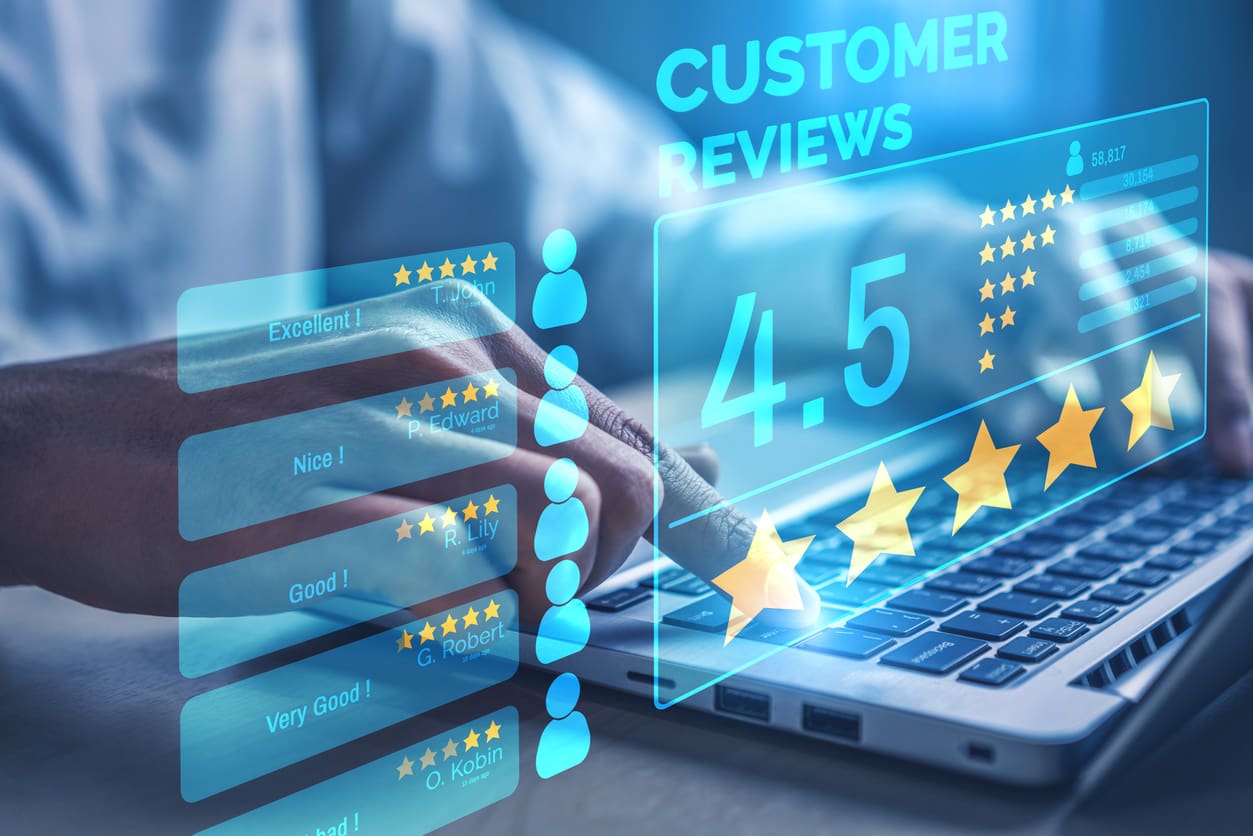 It comes to no surprise to most people that reviews are gamed. The biggest companies do it. You can look at the list. I'm not going to mention any names because a lot of them may be our clients, but from A-Z, the only way you can get reviews on Amazon is to violate their terms of service, unfortunately.
It comes to no surprise to most people that reviews are gamed. The biggest companies do it. You can look at the list. I'm not going to mention any names because a lot of them may be our clients, but from A-Z, the only way you can get reviews on Amazon is to violate their terms of service, unfortunately.
I'm not saying we do this, so if anybody's listening to this on Amazon, I'm not saying that we violate terms of service. We follow all terms of service like the Bible. Not that we believe in either of those things, but with that said, the terms of service on Amazon say that you cannot do anything to solicit any kind of a review for your product. Savvy companies understand this.
In the very early days of Amazon, people would just leave fake reviews. They would start an Amazon account—John Smith. They would maybe buy a product, maybe not, and leave a review.
Amazon thought, “Hey, you know what, we are going to make reviews verified. The only way to get a verified review is if somebody purchases it.” Now, you couldn't be John Smith. You had to be John Smith with a credit card and buy the product.
People got around that—prepaid credit cards, all kinds of systems where they open up fake accounts. Maybe they got a bunch of prepaid credit cards and they left reviews.
Amazon got smart to that. They said, “Well, we are no longer going to go for that.” So they required a minimum, which was $50. Now, you had to purchase $50. The account had to have a certain standing. They've put in security algorithms over time, which detected if a person was really a buyer or if it was a fake account.
They installed super sophisticated things even to the point that we discover them installing things that listen to your microphone that can hear the spinning of your hard drive because each hard drive has a unique sound when it spins and that is a fingerprint. They could identify each computer that way so they would know as you're leaving more than one review for a computer.
Then, savvy people got around that. There are Russian hackers and Bangladeshi hackers that figured out ways around that. But eventually, Amazon clamped down pretty tight so it became very difficult for sellers to get fake reviews. What I mean by that is completely erroneous reviews. We never did completely erroneous reviews. It was against our policy. I just didn't believe in it.
The other way where you can get reviews—which is what happens more likely than not now—is you can purchase products from one of these discount clubs. There are several of them out there. What these clubs are are manufacturers and sellers that want to get reviews. They will give you the product for free in exchange for a review. How that works now is that you have to buy it at full price.
What that does is it improves their ranking, because on Amazon, the more you sell, the more they push you up to that coveted page. For example, you're looking for a security camera. You put in the keyword “security camera.” Amazon doesn't want to feed you. They know you're not going to go passed the first page. They don't want to feed you a bunch of results that aren't selling. They want to sell you the top-selling things.
In order to sell on Amazon, you have to sell a lot. It's a little bit of a catch-22. What these sellers do is they'll say, “You know what, this camera cost me $69 to make. I'm retailing it for $399. I'm going to give it to you for $40. I'm going to give it to you for $20, but you're going to buy it at $399 and you're going to leave a review.” When you leave that review, you're going to send me a screen capture and then I'm going to refund you that money either in an Amazon gift card, a prepaid credit card, or I'll just give you cash for it.
There are a lot of companies that do that now, and that's one way that sellers get reviews. It is somebody who's purchased the product, possibly somebody who's used it, and possibly somebody who's leaving an honest review that may or may not be skewed by their incentivization.
The other way that reviews happen is that there are services out there that will give you products at a discounted rate. We do a lot of the work that we do where we teach people how to sell on Amazon. It's based on the work of this one professor, Professor Cialdini. Have you ever heard of him?
Yup.
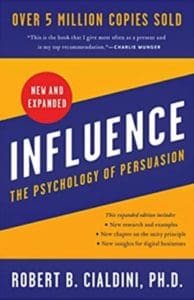
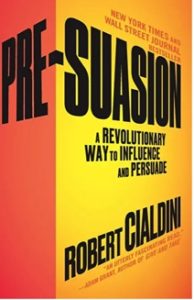 He wrote the book, Influence, and his subsequent book, Pre-Suasion. He talks about these five elements, now six. The sixth element of the foundation of being able to influence someone is reciprocity. If I give you something, you feel obliged to give me something. If we're sitting around and I'm like, “Hey, bud, here's a beer.” You're like, “Oh, great man, here are some peanuts.” That's just the way things work because that's reciprocity. It's a silly example, but it's true.
He wrote the book, Influence, and his subsequent book, Pre-Suasion. He talks about these five elements, now six. The sixth element of the foundation of being able to influence someone is reciprocity. If I give you something, you feel obliged to give me something. If we're sitting around and I'm like, “Hey, bud, here's a beer.” You're like, “Oh, great man, here are some peanuts.” That's just the way things work because that's reciprocity. It's a silly example, but it's true.
I think that ultimately, the way that those reviews work is that you get a good enough product. Maybe you get that security camera for $99, Chris. For $99, you're thinking, “Hey, this is a pretty good deal. I got a $400 camera for $99. Because I got that camera for $99, I'll leave them a good review.”
You leave a review. You're not being incentivized, so this remains within terms of service. We're not incentivizing you in any way to leave a review. We're not asking you to leave a review. We're just giving you a product at a very steep discount.
In those ways, a 90% discount is possible. An 80% discount is possible. A 100% discount is possible. What you're supposed to do is to disclose that you were incentivized to leave that review.
Any time we do a promotion like that, we demand that our people do write that. Amazon frowns on that and if you do that, the review could be taken down and the account could be closed. That is the catch-22 for sellers.
The problem is in these marketplaces, if everybody is not playing by the rules, you're not going to get ahead unless you do what everybody else is doing. It's not black and white. It's varying levels of gray to get it where you need to get it to.
People do leave honest reviews and people do buy the product. But on Amazon, the incentivization to leave honest reviews is very low. Less than 1% of the products that are sold on Amazon get reviews organically. Think about that. When you look at a product that's got 20,000 reviews, 40,000 reviews, and you multiply that by that percentage, you'll see that it's not natural for that level of reviews.
I definitely have received products that I've bought from Amazon and inside the manufacturer’s packaging is a little yellow piece of paper saying, “Hey, go ahead and leave us a review on Amazon and we will send you a gift certificate for $10.” I'm like, “Amazon definitely has not been opening these packages because they would not be allowing the seller to do that.” It always makes me go, “Oh, let me go back and look at those reviews. How many people have been taking them up on that offer?”
That's something that has 10% effectiveness. It's like pulling teeth. If you called up 100 of your friends and family, asked them to leave a review, and you saw how many of them actually complied, in the most optimistic cases, it's 20%. It's just so hard. There's so little incentive for people to do that. You really have to have an incentive.
Then, here's the other secret about these people. Most of the people who are doing that aren't just usual consumers. Most of the people who are getting those products at those steep discounts and leaving reviews are professional resellers. They're getting those products for free and reselling them for a profit on a different platform or on the same platform.
They're getting the product at a super steep discount, turning around, and selling it on a different platform, maybe below list price but well above what they paid for, and so they're making money off of it.
Yeah. Look, we make millions of dollars selling products on Amazon. We've got the number one selling matcha tea called Matcha DNA. We sell milk frothers. We sell kitchen knives. We sell everything on Amazon.
We almost exclusively sell on Amazon. We have one account on eBay that we sell through, but every time I go to eBay, there are hundreds of sellers reselling our stuff. A lot of it is food products, supplements. It's not stuff that you would sell used, so where are they getting these products? Something to think about. I see our stuff popping up all the time in third-party marketplaces.
I actually do have an answer for that of how that happens. My wife works for a company, and I won't disclose too much because she doesn't like me talking too much about it, but they sell products.
Every now and then, their sales distributors will call up and say, “Why is your product available for less than I can buy it for when I buy it directly from you guys? Why are you selling it to the public for less than I can buy it for? The company said we don't sell directly to the consumer. All of our sales are done through retail channels.”
The consumer is like, “But look, someone complained to me about it. I turned around, bought it, and it shipped straight from your warehouse to me at this price that's below my cost. What is going on?”
It turns out, through some digging, what's happening is there's a third person involved who's running the scam. You go to Amazon or eBay and buy the product well below the price. They turn around, buy it from the manufacturer using a stolen credit card, and drop-ship it to the consumer.
The consumer has that feeling of reciprocity because, “Hey, I got this great product for well under market. I'm not going to say anything when there's a funky name on the receipt that's not my name on it.” Amazon or eBay don't care because as far as they could tell, it was legitimate.
The manufacturer ultimately is the one who ends up paying the price because someone's going to dispute the credit card charge when they see this. I didn't buy anything from Amazon, or worse yet, I guess my wife bought something from Amazon and they don't dispute the charge. But if they dispute it, the dispute goes back to the manufacturer. The manufacturer has now shipped the product, they don't have the product, and the credit card has been disputed. You've created a channel disruption because people are thinking that you're selling to other channels cheaper than other people.
Man, you're talking about straight criminal activity.
Absolutely criminal activity. This stuff happens in scale because you could buy stolen credit cards all over the dark web and it's the manufacturer who ends up eating the profits.
There's a guy who does a podcast on that; it's fantastic. It’s called the Darknet Diaries. Have you ever heard his stuff?
Yes, I have.
He's spectacular. There's also a show called American Greed. Have you ever watched that show?
Yes, I have.
I never understood how people that are so bad at crime choose a life of crime. I'm just watching this. I'm like, “Dude, you got it. You're putting in all this energy. You could actually start a business. But no, you're doing crime. He's keeping a notebook. Why are you writing down your crimes? Don't write down your crimes.”
Then, in every show, you can time it at 37 minutes. It's like, “Cue the hookers.” And then the hookers come on. You're like, “Oh, my God, don't tell the hookers what you've done.” Oh, he told the hookers what he's done. It just escalates. I'm just like, “How could anybody be so bad at something?” You could do something else. Do something else, please. They're so good at these other things, but crime they're just not good at.
I guess it's just not within my psyche to want to take advantage of people. There are people who maybe come from a place of deep lack and a place of very low self-worth, low morals, low integrity, where they feel they have to take advantage of other people in order to get ahead in life. I guess there are people like that.
Maybe, there are other people who are like the Russian hacking mentality. Nothing against them. I've got lots of great friends that are Russians, but for Eastern Europeans like us against the big corporations, the big capitalistic system. Their concept is that they're the underdogs. It's only the corporations that are getting hurt from this kind of thing, very similar to the scam that you were suggesting.
That's really interesting. When I was 17, I was on the cover of Details Magazine. It was a crazy story. I write about it in my book that's going to come out. Actually, that's the picture. Pretty cool, right? That was the cover from Details Magazine. Me in the '90s with long hair.
They send us a reporter. The reporter comes in. This is the thing. I was like, my life wasn't as nuts—I mean, visibly, it's nuts—as what everybody expected from a guy that was running the Ecstasy Company. The reporter comes down. I was living up in the mountains in this place called Topanga. I had some fancy cars. I had a Ferrari and I had all that stuff, but I was focused mostly on my business.
This guy comes down. He's like, “OK, what kind of drugs do you do?” I was like, “I don't really do drugs, dude. I’ve got to run a company. I've got 200 employees.” He was like, “Alright, do you race your cars down the mountain?” I was like, “Not really, dude. That's a $100,000 Ferrari.”  I'm like, “No, I'm going to go out at noon to look at the house up the street because I want to climb the real estate ladder. I'm looking to buy that.”
I'm like, “No, I'm going to go out at noon to look at the house up the street because I want to climb the real estate ladder. I'm looking to buy that.”
The dude just couldn't get it through his head. He really wanted me to do some really bad things. I just wasn't doing any really bad things. Everything I was doing was to the dismay of the government, but it wasn't illegal, which was the thing that was getting about me was like, here's this long-haired kid. He invented this drug, but it's not illegal. It was driving them nuts.
At the end of the day, the article came out. It depends where the magazine came out, but I was on the cover with Chris Cornell who was the lead singer of this group called Soundgarden, which is this amazing group in the '90s. I don’t know if you knew them.
On the cover, I remember it said the $350 million scam. It was a 10-page exposé. There was one paragraph on Chris Cornell and 10 pages on me—pictures and all the stuff. I remember giving it to my girlfriend at the time, giving it to my secretary, giving it to everybody—we had secretaries back in the day—and giving it to my mom. I'm like, “Read this.” Nobody could find out where the scam was, just the headline that said the $350 million scam because we made $350 million on one product in that year.
I just remember thinking to myself like, “Really? This is the best you can do? There are so many crimes out there. There are so many bad scams.” That's what they wanted to do, but I realized that I would have never been good at crimes so I refrained from that. But there are a lot of guys out there in the criminal world that shouldn't be in that world.
What scares me is the people that are really talented at it, really good enough at it that they're not the guy telling his hooker about his scam. He's like, “No, I'm going to keep this on the down-low because I know I don't want to get caught.” If they're not doing the drugs and they're not living the high-profile lifestyle, you wonder if these guys are ever going to get caught with whatever crazy stuff they're doing, whatever scam they're running.
One final scam concept and we'll wrap it up here. I know there are tons of people that go out there promoting, “Hey, buy my $10,000 system and you could be making $1 million by selling your products on Amazon tomorrow.” We know that not everyone who's promoting a selling technique or a process is a scam and not everyone is telling the truth.
If someone is interested in learning how to sell on Amazon, learning how to have Amazon filter products for them, where is that balance of real information versus smoke and mirrors?
You and I were talking about this earlier before we came on the podcast. There's been this phenomenon of promoters holding shiny things in front of people that like chasing shiny things. It's the Insta culture that we've all become accustomed to.
Particularly young people—in particular, young males—are attracted to that. Particularly millennials were like, “Dude, I want a Lambo and three girls in a bikini in a hot tub on a yacht. I want to do that. I don't want to work a lot, so this sounds great.”
These gurus, the guys that do this kind of stuff, will have a tendency to latch on to whatever the hot thing is of the day—crypto, selling on Amazon, Shopify, drop-shipping was what it used to be. Back in our day, it was 900 numbers. Do you remember 900 numbers?
Yeah, I do.
There are so many guys selling 900 numbers and 900-number scams. Full disclosure, I have an Amazon course. I handpick every single one of my students. I have a 100% success rate, meaning that 100% of my students successfully launched an Amazon business and make money so far. I don't know what will happen tomorrow, but so far, we've had that thing.
We teach foundational thinking. I don’t teach get rich quick. -Shaahin Cheyene, CEO, Accelerated Intelligence Share on XThe reason is that we teach foundational thinking. I don't teach get rich quick. You could get rich quickly. It's a possibility. My favorite way to get rich is quick. But unfortunately, the more likely scenario is that you'll get rich slow, or you will create several streams of recurring revenue that can lead to a pretty good lifestyle. I know you have an online business, a website business, that brings in a good stream of revenue, real estate, and all these different types of things.
What I like to teach my students is that in this day and age, you have to be invested in real estate. When the market is up in real estate, it's not a good time to buy, so it's a better time to invest in another kind of real estate. And e-commerce is one of those ways. Selling on Amazon is really that.
I'm going to go into your question in a moment in more detail. Having an Amazon business that will create a recurring revenue stream is not something that you have to pay anybody for. This is the first thing I tell people. If anybody is interested, I have a one-hour course. It's free. It's everything you need to know. I charge zero for that.
You need to know nothing to launch an Amazon business other than what you can glean on the Internet for free. I'll give you a video for free that you could watch and learn how to do that. You need to know a little bit to be able to succeed at it.
If you want to really take it to the next level, you can gain all that information for free. You don't have to spend a penny doing it. I myself have invested hundreds of thousands of dollars in doing that. I buy all of the courses from all the gurus. I attend all the seminars. I've got people who do all that. We watch all of it. We put the elements that work which are, believe or not, very few from all these courses.
You would be amazed how many of these $10,000, $30,000, $50,000 courses have zero actionable information that you couldn't have gotten from a $9 Tony Robbins book in them. But at the end of the day, learning how to start a business—particularly an Amazon business—you have to think about it more like starting a new career. By doing that, you can choose to go to a university or a school and you will have to pay for that.
There's nothing wrong with paying for knowledge and paying for this information. The problem is when you have somebody whose main line of business is selling you these products, these courses, and their guruism. The guy's got a crypto course. He's got an Amazon course. He's got a Shopify course. He's got a drop-ship thing. Maybe, he's got a little 900-thing on the side, little tiny ads. Do you remember that guy?
That guy is making his money selling the courses. We make our money on Amazon, all day, all night. Love it. Love what I do. I've talked to Bezos before in the past. We've talked to all the Amazon leadership teams. We do this for Fortune 50, Fortune 500 companies. That's where I make my money. I teach on Amazon. I teach people how to win on Amazon and make money on Amazon through my FBA Seller Course because I want to empower people to become successful.
The difference is our group is a mastermind group. What that means is that there is a group of people in the same place as you, me, or anyone else starting at all different levels, and everybody pools resources. We pool learnings and we all learn from each other. We're constantly helping each other grow and expand.
We're very small. We're under 100 people right now. Everybody gets direct attention from me, my staff, and my company. What a lot of these other courses will do—and some of them are good. I've seen a couple out there that are decent. They're not cheap, but they're decent.
What a lot of these other ones will do is they'll give you a lot of online information and you may or may not succeed. If you fail, it's your fault. They have an upsell for that. The upsell is always, “You need me to direct-coach you. You need me to create a product for you and do this because you couldn't do it. It's not my fault for not teaching you.” Or they're like, “Thank you very much for the $10,000. Sayonara, dude.”
I think what may be more helpful to your viewers and listeners would be how to pick a good coach. My first piece of advice for you starting off is that you don't need to pay any money for it. There's great information online that you could get for absolutely free.
If you just want to get a basic understanding, open up an Amazon account. Those things are free. It doesn't cost money to open up an Amazon account.
Now, if you want to take advantage of somebody else's experience, you're going to have to pay them for that. Make sure that that person is an experienced seller. Make sure that they've done something in their lives.
One of my great teachers used to always tell me success leaves clues. That's something that's always resonated with me because living in Southern California, I'm sure you've seen it too. We talk about them all the time: the $30,000 millionaires. The guys that show up and talk a big game. You'd go home and you're like, “Dude, if you made that much money, why can't I find anything about you? Why are there no real articles? There are no traces of who you are.”
Google people. You can google me. I invite all of you guys to just google me. You'll see Newsweek, Time Magazine, Nightline, all that stuff. You'll see that stuff. I'm not just saying that because of me, I'm saying that because you can trace somebody's success trajectory and their past by just searching it nowadays.
If a dude is all of a sudden the end-all, be-all Amazon guru, “Where have you been, dude?” Check that. That's the first way to prevent any of that kind of stuff.
If it's OK with you, I'll give you the link on the show notes. To anyone of your listeners that's interested in selling on Amazon, I have a free one-hour course. There's zero obligation. I'm happy to share that link with them. It's in one hour—everything you need to know to start and launch an Amazon company and take it from there.
That is totally awesome. We'll make sure to link that in the show notes. If people want to follow you on social media, where can they find you?
It's shaahincheyene.com. I've got a few different ways to get ahold of me. If you want to learn about the course, get the free course or reach out to me. I answer all emails personally. It may take me a couple of days to get back to you, so please be patient, but I do respond to everybody individually, personally. Learned that from Seth Godin who's one of my absolute favorites who I know still does that to this day. One of the great authors.
The book, BILLION: How I Became The King Of The Thrill Pill Cult is the Herbal Ecstacy story. It will be coming out soon. We haven't released it yet, but I have a podcast by the same name. You guys can listen to the first chapter on audiobook. I have my own podcast, Hack And Grow Rich. You could follow me there or just go to shaahincheyene.com. I'm always happy to be of service to you or any of your viewers.
Totally awesome. Thank you so much for giving us an hour of your time today, Shaahin.
You rock, Chris. So nice to meet you.
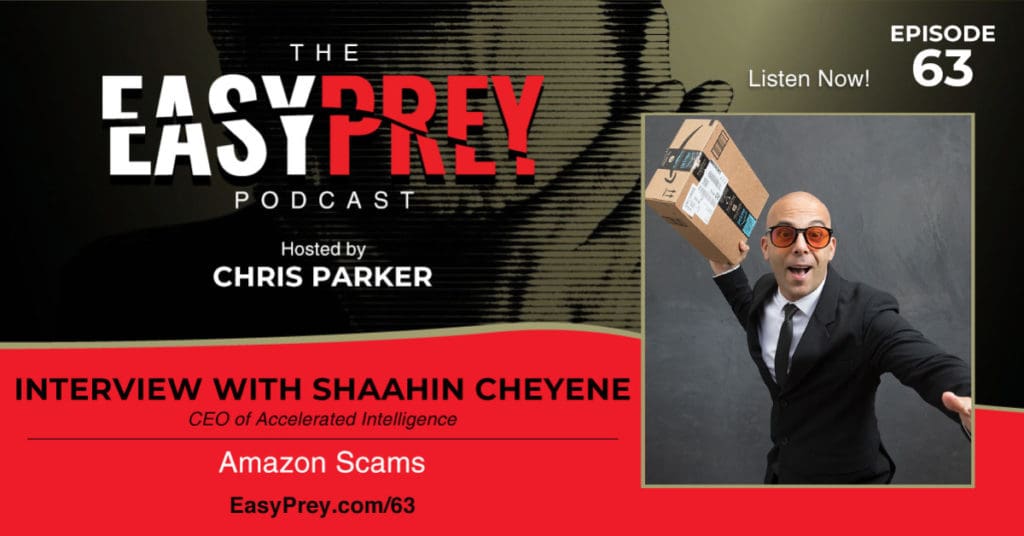

Leave a Reply